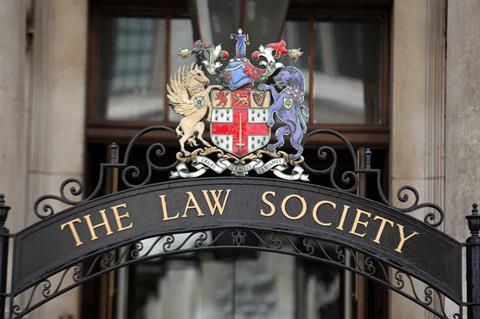Revised thresholds to determine legal aid eligibility will be seven years out of date by the time they are changed, a report published by the Law Society has warned.
Chancery Lane says Professor Donald Hirsch’s review of the government’s means test proposals show a more substantially generous legal aid system. However, any gains will disappear if income thresholds are not uprated with inflation.
The Ministry of Justice is consulting on a raft of changes to the means test, which is used to determine eligibility for most types of legal aid.
Previous reports by the University of Loughborough's Hirsch showed that the civil and criminal legal aid systems were denying help with legal costs to people who objectively could not be expected to cover these costs themselves.
In his latest report, Hirsch says the government's proposals create a substantially more generous system. However, the absence of provision for continuous uprating is a 'glaring omission'.
The government's consultation states that the income and capital thresholds will be regularly reviewed, with the first review being conducted within three to five years of the new means test coming into operation in its entirety.

Hirsch says: ‘As costs, incomes and expenditure rise over time, the thresholds will quickly become out of date. Yet the proposals as set out make it likely that thresholds, based on evidence from 2019/20, will be introduced four years later in financial year 2023/24, and are unlikely to be updated until at least 2026/27, based on the decision to review them every three to five years.
‘The implication is that thresholds will be seven years out of date before they are changed again. Using the Bank of England’s inflation forecasts (which optimistically project inflation as returning to the 2% target by 2024), prices will be 20% higher in 2026 than in 2019.’
The report recommends uprating all thresholds and allowances related to disposable income annually in line with the Consumer Prices Index. Upratings should be backdated to 2019/2020 when the proposals were drawn up.
Phoebe Clapham, head of the means test review, told a Law Society webinar that her team is 'actively considering' bringing forward the timetable for checking whether income and capital thresholds need to be uprated. However, annual uprating was ruled out.
Hirsch also recommends giving lone parents a supplementary cost-of-living allowance equal to half the amount that would be assigned to a partner or additional adult.
Commenting on the report, Law Society president I. Stephanie Boyce said that the government's proposals fail to recognise that one-parent families must budget a higher proportion of their income to pay for their children’s needs. Lone parents also commonly need legal help for family cases and rarely have income high enough to afford it without legal aid - they include survivors of abuse seeking protection for themselves and their children.
The means test consultation closes on 7 June.


























